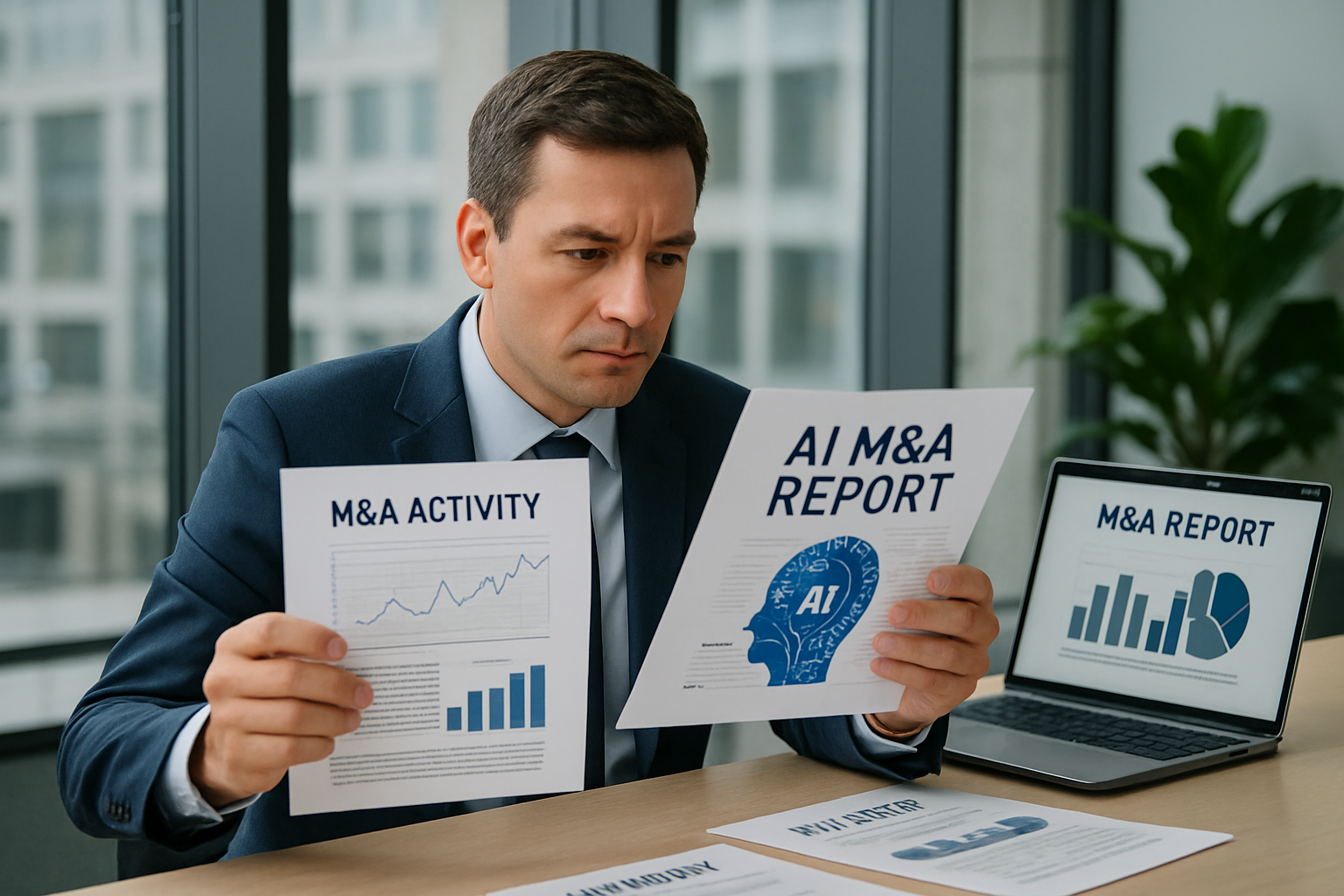Quick Take
- AI deal values jumped 127% in H1 2025 despite 20% volume decline
- Private AI fundraising dropped 40% year-over-year amid market uncertainty
- 40% of CEOs fear their companies won’t survive without AI adaptation
- Legacy companies pay premium prices for AI startups and talent acquisition
PwC survey data reveals unprecedented AI M&A activity as companies race to adapt, with deal values surging 127% despite funding challenges threatening business survival.
Market Resilience Amid Funding Decline
Global AI investments remain resilient despite market uncertainty. Business executives, investors, and governments continue prioritizing AI infrastructure and dealmaking with AI developers. This strategic focus transforms how companies approach mergers and acquisitions worldwide.
AI private capital fundraising dropped 40% year-over-year. However, a significant portion of the H1 2025 funds targets AI investments. Businesses are racing to maintain competitiveness amid rapid technological change and market disruptions.
Geopolitical tensions intensify competition between nations. Governments funnel subsidies and incentives to Silicon Valley and Beijing innovation hubs. Each country strives to lead AI advancements through targeted support programs.
Strategic Acquisitions Drive Survival
Strategic AI acquisitions accelerated in 2025. Legacy companies need these deals to compete against the disruption of AI. Without adaptation, 40% of CEOs believe their companies won’t survive the next decade, according to PwC survey data.
Deal volume involving AI targets fell 20% from H1 2024. Yet total deal value surged 127% in the same period. Investors pay hefty premiums for promising startups and AI talent. Bold positioning moves target the next AI-led innovation cycle.
Big Tech companies prepare for the next innovation wave. They recruit top talent from fast-growing AI startups. Significant capital investments integrate AI across workflows and product offerings.
AI Transforms M&A Processes
Innovative technology revolutionizes merger and acquisition workflows. Companies now review thousands of documents quickly using AI tools. Hidden risks become visible through automated analysis systems.
AI streamlines pre-deal phases through target identification and screening. During execution, AI accelerates due diligence by analyzing contracts and financial records to simplify the process. Document review accuracy increases while processing time drops significantly.
Post-merger integration benefits from AI-driven data consolidation. Deal success monitoring becomes more precise and actionable. Companies reduce risk while improving decision-making speed throughout merger processes.
Strategic Implementation Advantages
AI adoption costs remain high, but inaction costs more. Companies that utilize AI throughout their M&A processes discover innovative applications. Target identification becomes more precise in pre-deal stages.
Execution speeds up through enhanced due diligence capabilities. AI assists with data consolidation and reduces the risks associated with integration. Hidden value opportunities emerge that competitors might miss.
The technology automates repetitive tasks across deal lifecycles. Vast amounts of unstructured data receive real-time analysis. AI delivers insights that reshape M&A professional workflows.
Global Market Transformation
AI significantly reduces due diligence time while improving accuracy. Document review and risk assessment become more reliable. Companies identify suitable acquisition targets with greater precision.
Data-driven decisions replace traditional gut-feeling approaches. Post-merger success measurement becomes more effective. Transaction costs drop while opportunity discovery increases.
Private capital drives AI innovation forward. Venture capital firms back emerging AI platforms and next-wave innovations. Private equity focuses on AI-related data infrastructure and strategic acquisitions. These investments enable portfolio companies to compete effectively against AI disruptors.
Leadership Imperative
Understanding AI’s evolving role in mergers and acquisitions becomes crucial for leaders. The landscape transforms rapidly, requiring strategic AI implementation knowledge. Staying informed about AI advancements is essential for maintaining a competitive edge.
Companies that resist adapting to AI face existential threats. Those embracing AI throughout merger processes gain significant advantages. The choice between transformation and obsolescence defines the future of businesses.
Business professionals globally must align with AI developments. Sustained growth depends on embracing these technological shifts. Sectors across various industries require AI integration to maintain a competitive edge.




